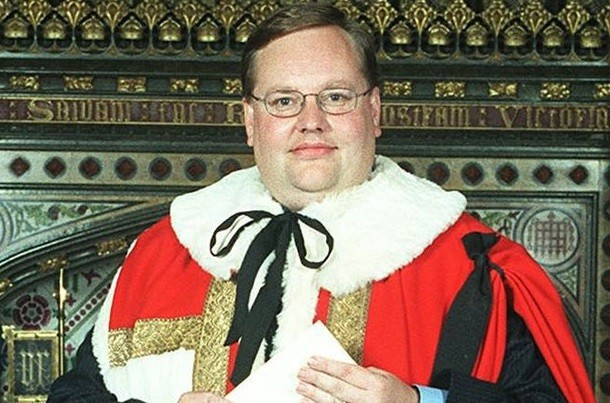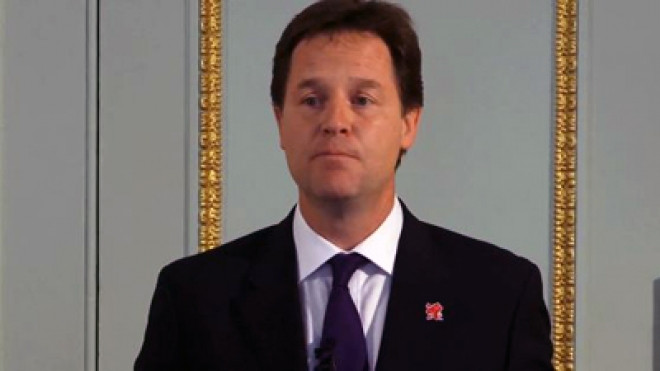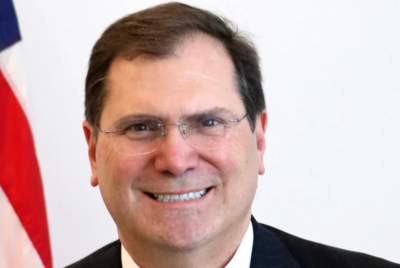Profile: Liberal Democrat Lord Rennard and Sex Harassment Row

In Liberal party circles the name Chris Rennard used to be uttered in the most reverential terms. His success at winning by-elections for the party, stretching over three decades, suggested he had near magical abilities.
Time and again he would pull off those "sensational by-election upsets" that used to hit the headlines, starting in the 1983 Mossley Hill poll in Liverpool where he helped win a 14% swing against the Tories. He was just 23 at the time.
He was credited with creating the notion of pavement politics and even turning tactical voting into a widely practised election behaviour.
LibDem leader Paddy Ashdown once described him as: "a formidable and widely-respected practitioner of political campaigning across all parties", while others, even his opponents, accepted he was one of the most astute and to-be-feared operators going.
As far as many of the party's political opponents were concerned, however, it was a particularly black form of magic that Rennard practised and which helped give the Liberals and later the Liberal Democrats a reputation for playing dirty and being ready to appear all things to all voters.
Either way, his track record and skills were undeniable and candidates were always more than delighted when he turned up to invoke his powers in support of their campaigns and send shivers down the spines of their enemies.
But, for the general public, the name Chris Rennard was unknown. While his closest equivalent in the Labour Party, Peter Mandelson, became a household name, Rennard remained anonymous. Until now – and for all the wrong reasons.
He was appointed as the party's director of campaigns and elections a year after the party's 1988 formation from the old Liberal-SDP Alliance. He went on to score a number of by-election victories with his tactic of flooding the area with activists and engaging voters on the doorstep over key local issues.
He was given a life peerage in 1999 and served as the party's chief executive from 2003 before leaving in 2009 on health grounds.
A year ago Channel 4 News broadcast claims that Rennard, now 53, had a history of sexual harassment. He denied the allegations and, in April, the Metropolitan Police launched an investigation.
Party leader Nick Clegg was dragged into the row amid claims he should have acted much earlier after previous complaints had been made. He said he had only been aware of "indirect and non-specific concerns" over Rennard's behaviour although party president Tim Farron claimed the leadership had "screwed up" in the way it dealt with the allegations at that point.
In September the police decided not to bring charges against Rennard but the party then undertook its own internal inquiry, chaired by Alistair Webster QC, which this week reported that, while there was broadly credible evidence of "behaviour which violated the personal space and autonomy of the complainants", it was: "unlikely that it could be established beyond reasonable doubt that Lord Rennard had intended to act in an indecent or sexually inappropriate way".

But that was far from the end of the matter. Rennard said he was looking forward to returning to his role in the party but Clegg ruled that out and called on him to apologise to the women, who were dismayed by the lack of action.
He has so far insisted he has no intention of apologising.
Bridget Harris, a former advisor to Clegg who claimed the peer repeatedly touched her legs during a meeting in 2003, said she had quit the party and would not return so long as he was a member.
Others accused the party leadership of "cowardice" in failing to take robust action against him.
Ironically some of Rennard's success was down to his ability to help the party recover after a series of scandals in the past decade.
There was the alcoholism of former leader Charles Kennedy, who was finally persuaded to stand down in 2006 after a group of senior party figures including Rennard confronted him.
Shortly afterwards there was the scandal of former MP Mark Oaten's association with rent boys and party president Simon Hughes' outing as gay after years of denial, all of which rocked the party and from which Rennard helped it fight back.
The current scandal is all of his own making and has seen leader Nick Clegg coming under pressure not only to disown him but to expel him from the party for bringing it into disrepute.
It seems the Rennard magic has finally deserted him.
© Copyright IBTimes 2025. All rights reserved.






















